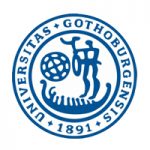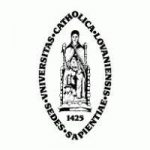项目介绍
The University of Gothenburg tackles society’s challenges with diverse knowledge. 56 000 students and 6 600 employees make the university a large and inspiring place to work and study. Strong research and attractive study programmes attract researchers and students from around the world. With new knowledge and new perspectives, the University contributes to a better future.
Doctoral position in Medical Science
Project title: Dissecting cardiac genomes in human heart failure
The Department of Molecular and Clinical Medicine is located at the Institute of Medicine at the Faculty of Medicine at Sahlgrenska Academy, University of Gothenburg. Our primary research at the department focus on metabolism, diabetes, obesity and cardiovascular disease. We support and promote research and teaching in translational medicine to improve health and to benefit society.
General information about being a doctoral student at the University of Gothenburg can be found on the university’s doctoral student pages Doctoral studies | University of Gothenburg (gu.se)
Duties
The PhD education in Medical Science comprises carrying out a scientific project and completing at least 30 credits of courses at third-cycle level. The doctoral student must also write a scientific compilation thesis or monograph corresponding to at least 120 credits. For more information about third-cycle studies at Sahlgrenska Academy, see https://www.gu.se/en/sahlgrenska-akademin/doctoral-studies
The project “Dissecting cardiac genomes in human heart failure” aims to determine the contribution of somatic mutations to heart failure (HF). HF is a leading cause of death and disability which results when the heart is unable to generate sufficient output of blood for the needs of the body. The causes and mechanisms underlying HF are poorly understood and therapy mainly targets the consequences rather than causes of HF.
Somatic DNA mutations are genomic sequence changes in somatic cells that escape the DNA repair machinery and accumulate over the individual lifetime, resulting in cell lineages with different sequence in tissues (mosaicism) or different mitochondria from the same cell (heteroplasmy). Somatic mutations may be cytotoxic, resulting in cell death, or confer functional consequences interfering with tissue structure or function, as in cancer, clonal hematopoesis, or endocrine adenomas. The occurrence of somatic DNA mutations varies widely across cell types and developmental timepoints. Data on the rate and landscape of somatic mutations in the adult human heart are lacking, as is our understanding of its impact in HF, in part due to the difficulty of obtaining human heart tissue. However, rates are likely to be high given the massive generation of free radicals during cardiac metabolism.
The PhD candidate will leverage whole genome sequence data from a unique resource of explanted hearts collected from both of the Swedish heart transplant centers (Gothenburg and Lund) to determine the contribution of somatic mutations in nuclear and mitochondrial DNA as well as viral sequences to HF. Analyses will draw on experience from cancer genomics, with cancer and hematopoetic genomics experts serving as co-supervisors. The candidate will thus obtain broad insights into genome analysis and applications from both major contributors to human disease – heart disease and cancer. Tasks will include reading the relevant literature, study planning, developing computational pipelines, and conducting statistical analyses. Supervision will include weekly one-to-one meetings and group meetings, journal clubs, and retreats, with additional meetings as needed. The PhD student will be encouraged to attend and present at departmental seminars and national and international genetics and cardiovascular conferences.
The project will be conducted within the translational research unit led by professor Gustav Smith based at the Wallenberg Laboratory of Gothenburg University and Sahlgrenska University Hospital in Gothenburg, Sweden.
The research group also extends to Lund University, Skåne University Hospital, the national SciLifeLab intrastructure, and benefits from broad international collaborations including with the Broad Institute of Harvard and MIT and New York Genome Center. The group includes experimental, bioinformatic and clinical PhD students, bioinformaticians, research nurses, postdoctoral and senior researchers. The group is passionate about excellent research on the international level but also about creating a good working environment characterized by respect and consideration where we strive for all members to feel involved, stimulated and well supported.
Our research group is now looking for a highly motivated, curious, and talented candidate for the PhD project. It is advantageous if applicants have documented experience with bioinformatics and programming with R/Python/similar, and experience in genome or transcriptome sequence analysis. Emphasis will also be placed on personal characteristics including communicative and collaborative skills as well as scientific curiosity.
Education at third-cycle level comprises four years of full-time study, and leads to a doctoral degree. As part of your employment as a doctoral student, you may have departmental duties corresponding to up to 20 % of full-time employment, distributed throughout your study period. Departmental duties usually consist of teaching at first- and second-cycle levels, but may also include research and administration.
Eligibility
Education at third-cycle level requires general eligibility and specific eligibility as set out in the general syllabus for the subject.
The general eligibility requirements for education at third-cycle level are:
1. having completed a degree at second-cycle level, or
2. the fulfilment of course requirements totalling at least 240 credits, of which at least 60 credits must be at second-cycle level, or
3. the acquisition of equivalent knowledge in some other way, either in Sweden or abroad.
Specific entry requirements for this subject, according to the general syllabus, are:
having completed the English B/6 course or is considered to have acquired equivalent knowledge through previous studies.
Assessment criteria
The selection of applicants who are considered to have the ability required to benefit from the study programme and who meet the general and specific eligibility requirements are assessed based on the following documented qualifications:- specific knowledge and skills within the subject area and related research fields
– experience of scientific theory and relevant research methodology
– scientific analysis and presentation verified through thesis, degree project, scientific journals or the like.
Employment
Once you have been admitted for education at third-cycle level, you will be employed as a doctoral student at the University of Gothenburg. The provisions for employment as a doctoral student can be found in ordinance SFS 1993:100. Initial employment as a doctoral student may apply for a maximum of one year, and may be renewed by a maximum of two years at a time. A doctoral student may be employed as a doctoral student for a maximum of eight years, but the total period of employment may not be longer than the equivalent of full-time education at third-cycle level for four years.
Location: Sahlgrenska Academy, Institute of Medicine, Department of Molecular and Clinical Medicine. Extent: 100%. First day of employment: as agreed.
The University applies a local agreement on salaries for doctoral students.
Contact information
For more information about the project please contact principal supervisor,
Gustav Smith, Professor, Institute of Medicine,
e-mail: gustav.smith@wlab.gu.se
Unions
Union representatives at the University of Gothenburg can be found here:
https://www.gu.se/om-universitetet/jobba-hos-oss/hjalp-for-sokande
Application
You can apply to be admitted for education at third-cycle level via the University of Gothenburg’s recruitment portal. It is your responsibility to ensure that the application is complete as per the vacancy notice, and that the University receives it by the final application deadline.
You must include the following, in pdf format
- Personal letter
- CV
- Diploma and transcripts showing that you meet with the general entry requirement
- Proof of completion of English 6 course or the acquired equivalent knowledge through previous studies
If your degree is from a university outside of Sweden, make sure that you attach a diploma and full transcripts that makes assessing your degree easier.
If your degree has not been verified by a Swedish authority you need to provide contact details to the issuing university, registrar or similar, that can verify the degree at our request.
For information on what you need to submit in order to fulfill the English language requirement see https://www.universityadmissions.se/en/entry-requirements/english-language-requirements/
Applications must be received by: 2024-08-12
Information for International Applicants
Choosing a career in a foreign country is a big step. Thus, to give you a general idea of what we and Gothenburg have to offer in terms of benefits and life in general for you and your family/spouse/partner please visit:
https://www.gu.se/en/about-the-university/welcome-services
https://www.movetogothenburg.com/
项目概览

联系方式
电话: +46 31-786 00 00相关项目推荐
KD博士实时收录全球顶尖院校的博士项目,总有一个项目等着你!



